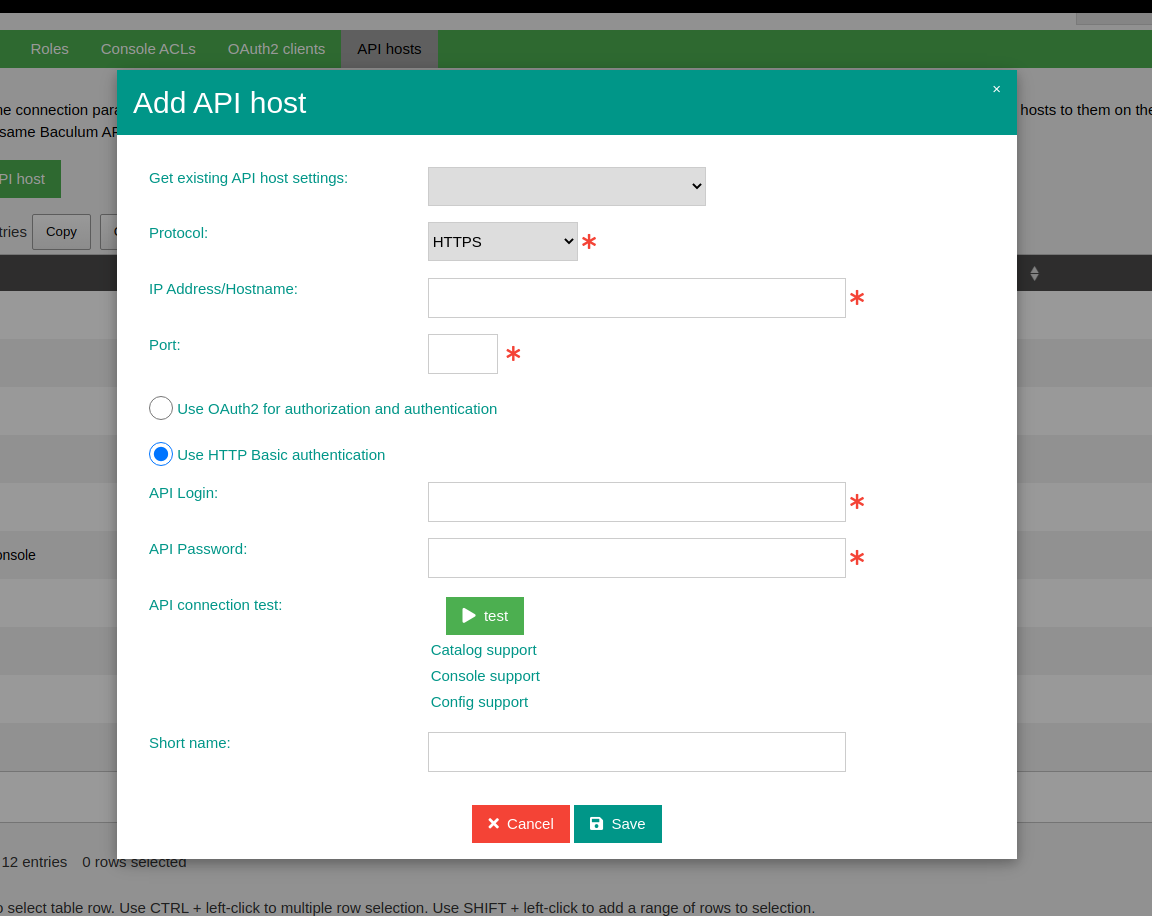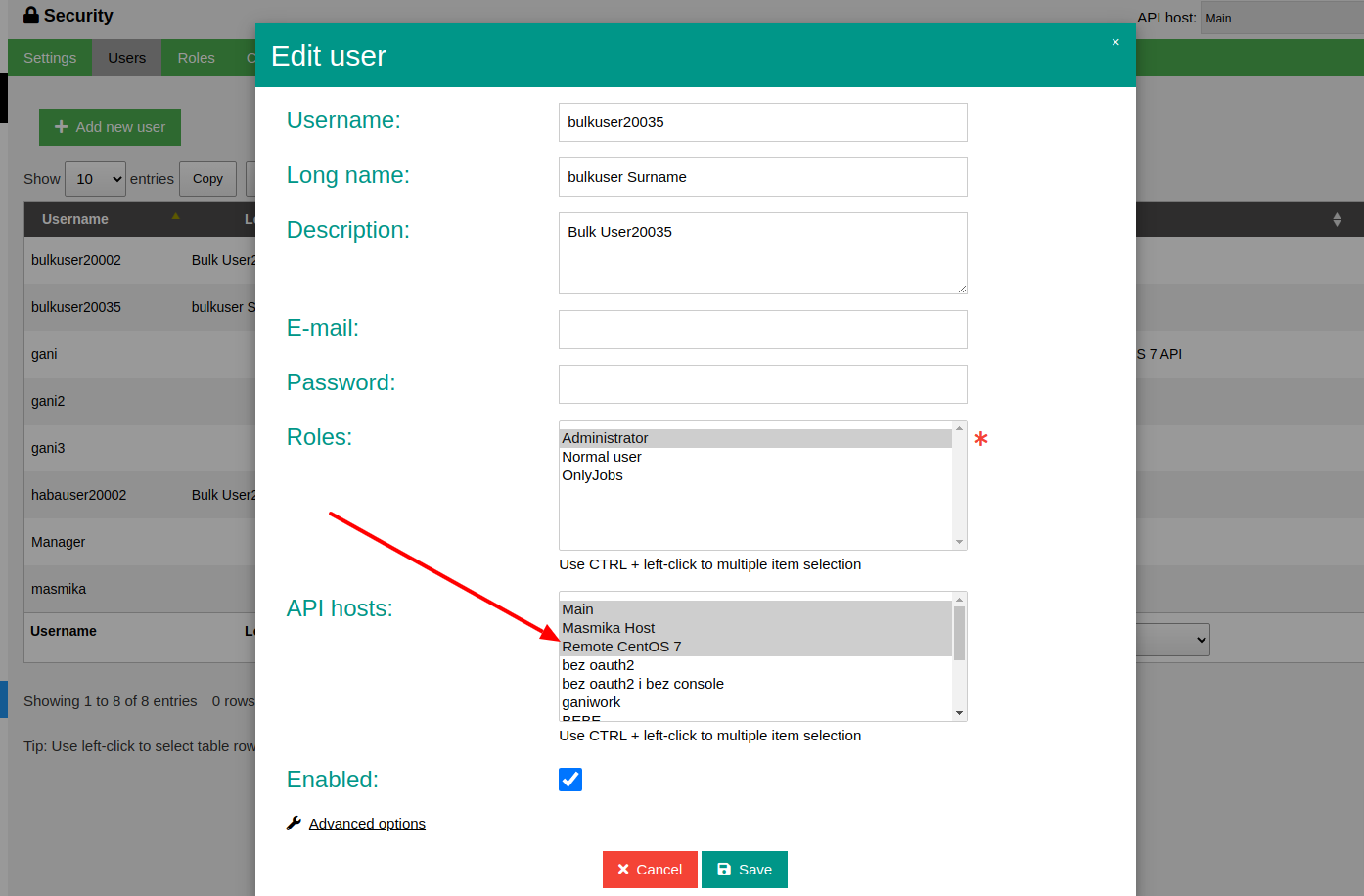Preparing hosts#
Before start#
Before installing Bacularis API on remote hosts, ensure that all necessary Bacula components and dependencies are in place. Refer to the API capabilities chapter for a detailed overview of what’s required.
If the host is behind a firewall, make sure to open port 9097, which is used by Bacularis API for communication.
Automated installation#
To simplify the setup process on remote hosts, you can use the built-in Bacularis Web deployment feature. It allows you to install Bacularis API and Bacula components, and configure them — all from the Bacularis Web interface.
For more details, see the Deployment chapter.
Alternatively, you can use external automation tools such as Ansible or similar solutions that support bulk installation across multiple systems.
Host binding#
To add new API hosts, go to:
[Main menu] => [Page: Security] => [Tab: API hosts]
Here, you can register and manage the hosts available to Bacularis.

Assigning hosts#
API hosts must be explicitly assigned to users in order for them to access and manage those hosts. Each user can only operate on the API hosts that are assigned to them.
If a user has no hosts assigned, they will automatically work with the Main host — the default instance configured during the initial Bacularis Web installation.
To assign hosts to users, go to:
[Main menu] => [Page: Security] => [Tab: Users]

